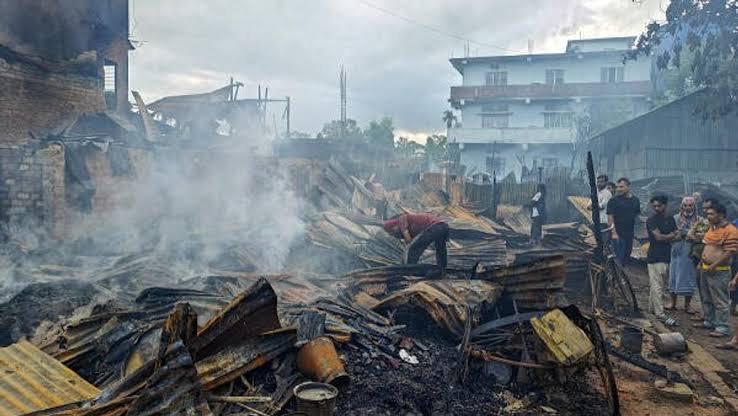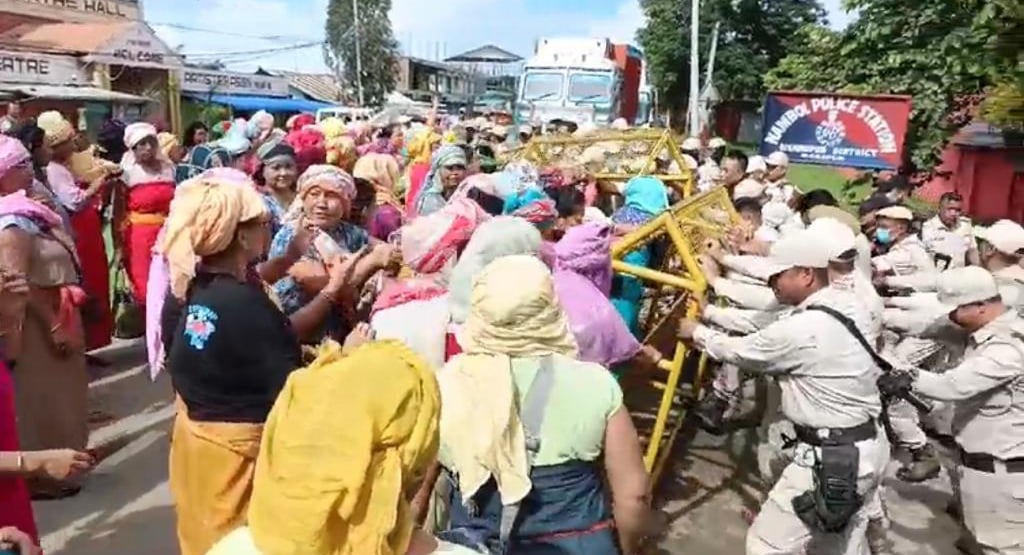COCOMI Rejects "Sham" Peace Talks, Accuses Indian Government of Perpetuating Manipur Crisis
CONFLICT
Imphal: The Coordinating Committee on Manipur Integrity (COCOMI), a prominent Meitei civil society organization, has outright rejected a recent meeting in New Delhi between representatives of the Meitei and Chin-Kuki-Mizo-Zomi-Hmar communities, branding it a "façade of peace talks" orchestrated by the Ministry of Home Affairs (MHA). In a strongly worded press communiqué issued today, COCOMI accused the Government of India, under Union Home Minister Amit Shah, of pushing a misleading narrative to downplay the ongoing crisis in Manipur as a mere "ethnic conflict" while ignoring its deeper, more complex roots.




The meeting, facilitated by MHA officials, was intended to foster dialogue between the warring Meitei and Kuki communities amid violence that has plagued the state since May 2023. However, COCOMI declined to participate, calling it a "stage-managed spectacle" designed to validate Shah’s parliamentary claim that the unrest stems solely from ethnic tensions triggered by a High Court directive on Scheduled Tribe (ST) status for Meeteis. "This narrative is a gross distortion of facts," the communiqué stated, arguing that it obscures the role of a "proxy war" fueled by Chin-Kuki narco-terrorist groups, allegedly supported by the Indian government since 2005 under the Suspension of Operations (SoO) Agreement.
COCOMI’s statement pointed to a history of government complicity, alleging that New Delhi has nurtured these armed groups as part of a broader geopolitical strategy along the Indo-Myanmar frontier. "The Government of India is not a neutral mediator but an active party to this conflict," said Laikhuram Jayenta, Convenor of COCOMI’s IPR Sub-Committee. The group criticized the lack of substantive action to address the crisis, accusing the government of relying on "symbolic gestures" and "political optics" rather than tackling root causes such as illegal immigration, narco-terrorism, and separatist agendas like Zalengam and Kukiland.
The violence in Manipur, which has claimed numerous lives and displaced thousands, has seen little respite despite promises from the central government. Posts on X in recent days reflect growing frustration, with some users alleging that policies like land evictions targeting Kukis and the push for ST status for Meiteis—potentially influenced by the RSS’s Hindutva ideology—have exacerbated tensions. Others have accused the ruling BJP of sponsoring ethnic violence, a charge echoed in COCOMI’s demand for accountability.
Among its urgent demands, COCOMI called for the immediate scrapping of the SoO Agreement, which it claims grants impunity to foreign-origin armed mercenaries. The group also urged the government to neutralize hostile elements in the hill areas, restore access to highways—disrupted as recently as March 8, 2025—and prosecute those defying peace initiatives. "The prolonged crisis is the direct result of false assurances and covert encouragement extended to Chin-Kuki separatist elements," the communiqué warned, accusing the government of "weaponizing ethnic identities" to pursue a "divide and rule" policy.
The rejection of the peace talks has drawn mixed reactions. Some posts on X align with COCOMI’s view, labeling the initiative a "false narrative" by the MHA, while others lament the ongoing stalemate. Analysts suggest that the government’s failure to address the SoO groups’ influence—whose leaders reportedly hold sway over conflict decisions—has undermined civilian efforts at reconciliation.
As Manipur remains under President’s Rule, COCOMI emphasized that only a "terror-free environment" can pave the way for genuine dialogue between civilian populations. "Civil society organizations cannot disarm militants or enforce the rule of law," Jayenta noted. "That is the government’s sole responsibility."
With the crisis showing no signs of abating, COCOMI has appealed to the people of Manipur, India, and the global community to see through what it calls a "deceptive game." The group reaffirmed its commitment to justice, peace, and the preservation of Manipur’s territorial integrity, even as it braces for a prolonged struggle against what it perceives as state-sponsored divisiveness.
